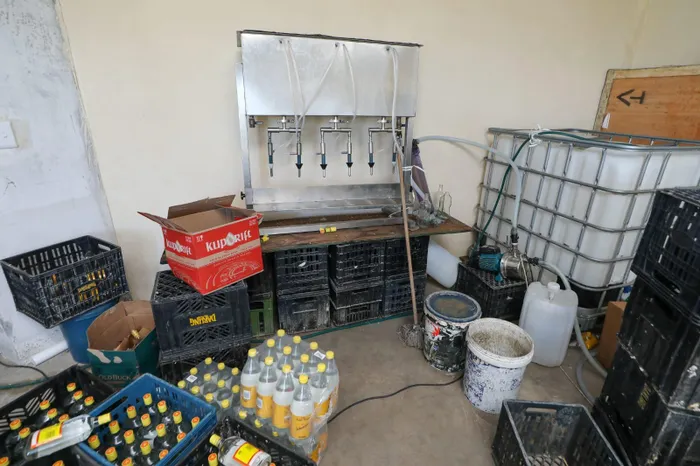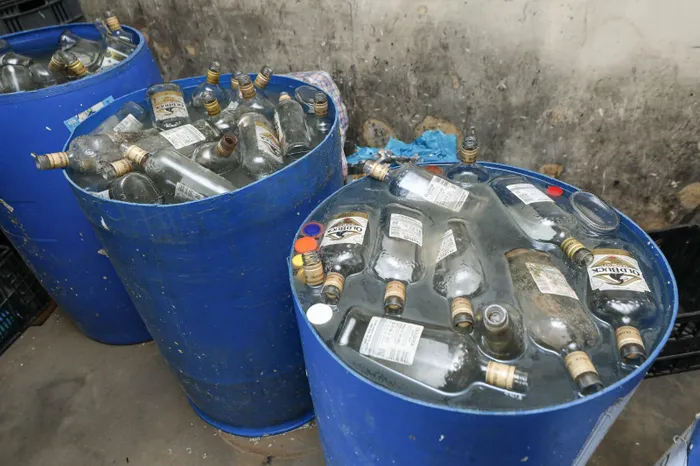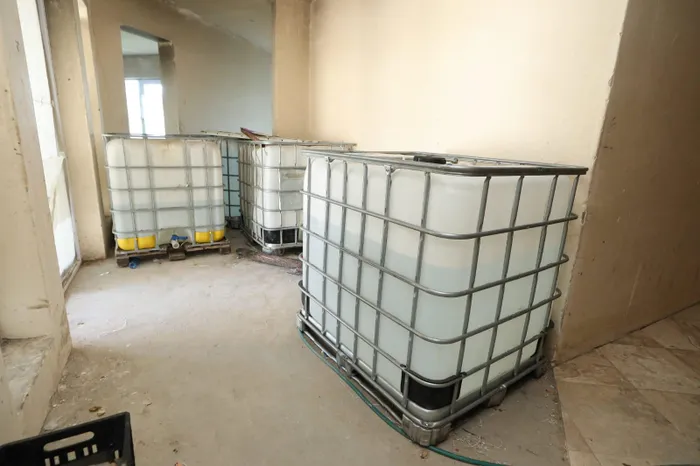
Illegal alcohol facility busted.
Image: Supplied
THE manufacturing of illegal alcohol is becoming more sophisticated, making it difficult to identify illicit products, says the South African Liquor Brand owners Association (SALBA).
The organisation was reacting to a recent police operation which resulted in the arrest of seven people following the discovery of thousands of litres of ethanol at an illegal alcohol manufacturing facility in Klapmuts in the Cape Winelands.
The five men aged between 25 and 43 and two women, both aged 20, were arrested on Monday at a building along the R44 in Klapmuts, where alcohol production equipment was found.
Police spokesperson Wesley Twigg said: “Members of the Maitland Flying Squad followed up (on) information about a facility manufacturing illegal alcohol. The members visited the premises on the R44 in Klapmuts and found the facility with alcohol manufacturing equipment inside the building. Seven Somali nationals, five males aged between 25 and 43 and two females both 20 were arrested for Contravention of the Liquor Act.”
Police confiscated containers with ethanol, 20 big white 1000 litre containers, empty bottles and machines.

Seven Somalian nationals, five males aged between 25 and 43 and two females both 20 were arrested for Contravention of the Liquor Act following the bust an illegal facility in Klapmuts.
Image: Supplied
Probed further on how exactly the place was discovered, Twigg would only say: "The source and how the facility was uncovered forms part of the investigation."
SALBA spokesperson Kurt Moore said the illegal operations typically bottle products in unbranded or counterfeit packaging and sell them to informal markets at prices far below legal products.
“Illicit alcohol does not comply with stringent manufacturing regulations, posing serious risks to consumers. Unfortunately, these illicit products are found in both informal and formal sectors. The manufacturing of these illicit products has become more sophisticated making it more difficult to identify illicit products. Illicit traders also target white spirits because these products are easier to counterfeit," Moore said.
He said the illicit trade undermines both the economy and the legitimate industry.

Ten big white 1000 litre containers were found each loaded with ethanol.
Image: Supplied
“Each year, the state loses billions in excise and VAT revenue, while legitimate producers lose market share to criminal operators. Illicitly produced alcohol is not subject to quality controls or safety standards. Criminals often use industrial-grade ethanol or dilute products with unsafe substances, posing serious risks to consumers, including alcohol poisoning, long-term organ damage, or fatalities. Beyond health risks, these products erode trust in the regulated alcohol market,” said Moore.
Southern African Alcohol Policy Alliance (SAAPA) secretary-general Aadielah Maker Diedericks said the high demand for alcohol in South Africa was driven by a combination of social and economic factors.
Affordability plays a key role in pushing consumers toward illicit sources, although the majority of alcohol consumed remains legally and commercially produced, she said.
“Whilst we acknowledge that illegal trade does happen to some extent, the data shows that it is still the legal commercially brewed alcohol that is being sold and consumed. (Factors driving the high demand include) The prolific availability in communities of licensed and unlicensed outlets, unenforced laws, unregulated and aggressive marketing, and cheaply priced alcohol e.g. Cape Town and Johannesburg (have) among the cheapest beer available in the world,” she said.
Cape Times